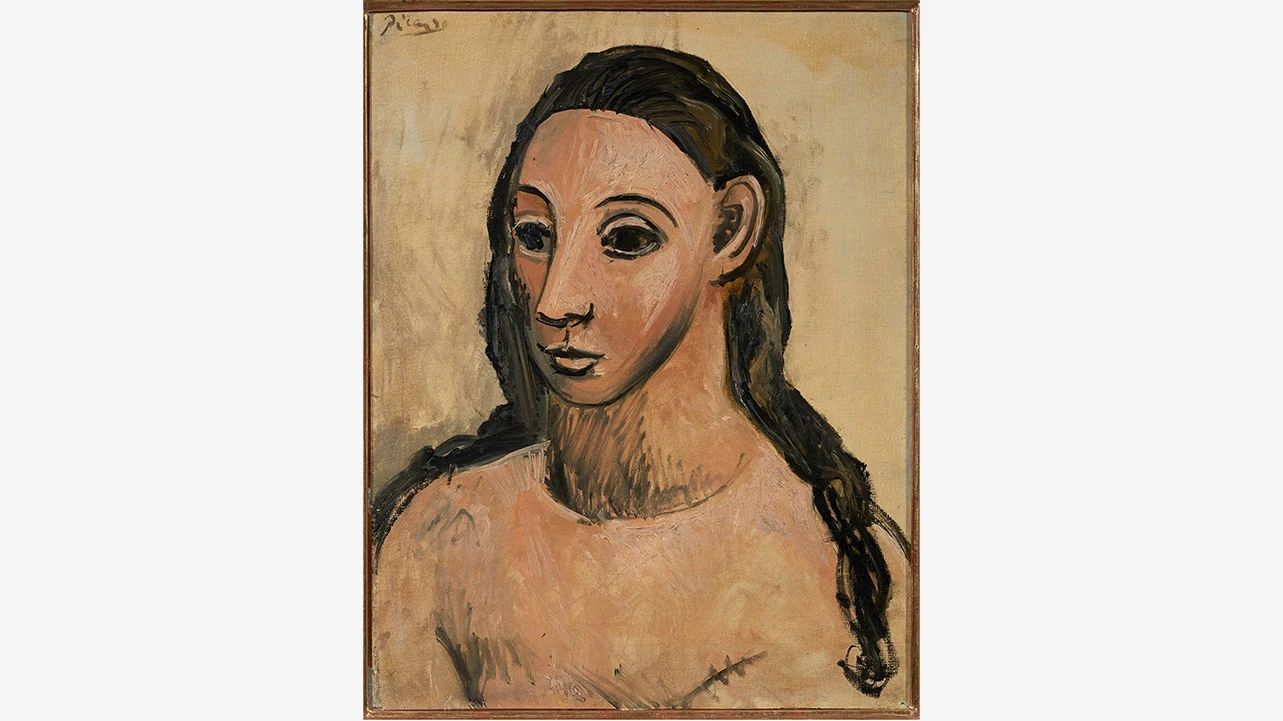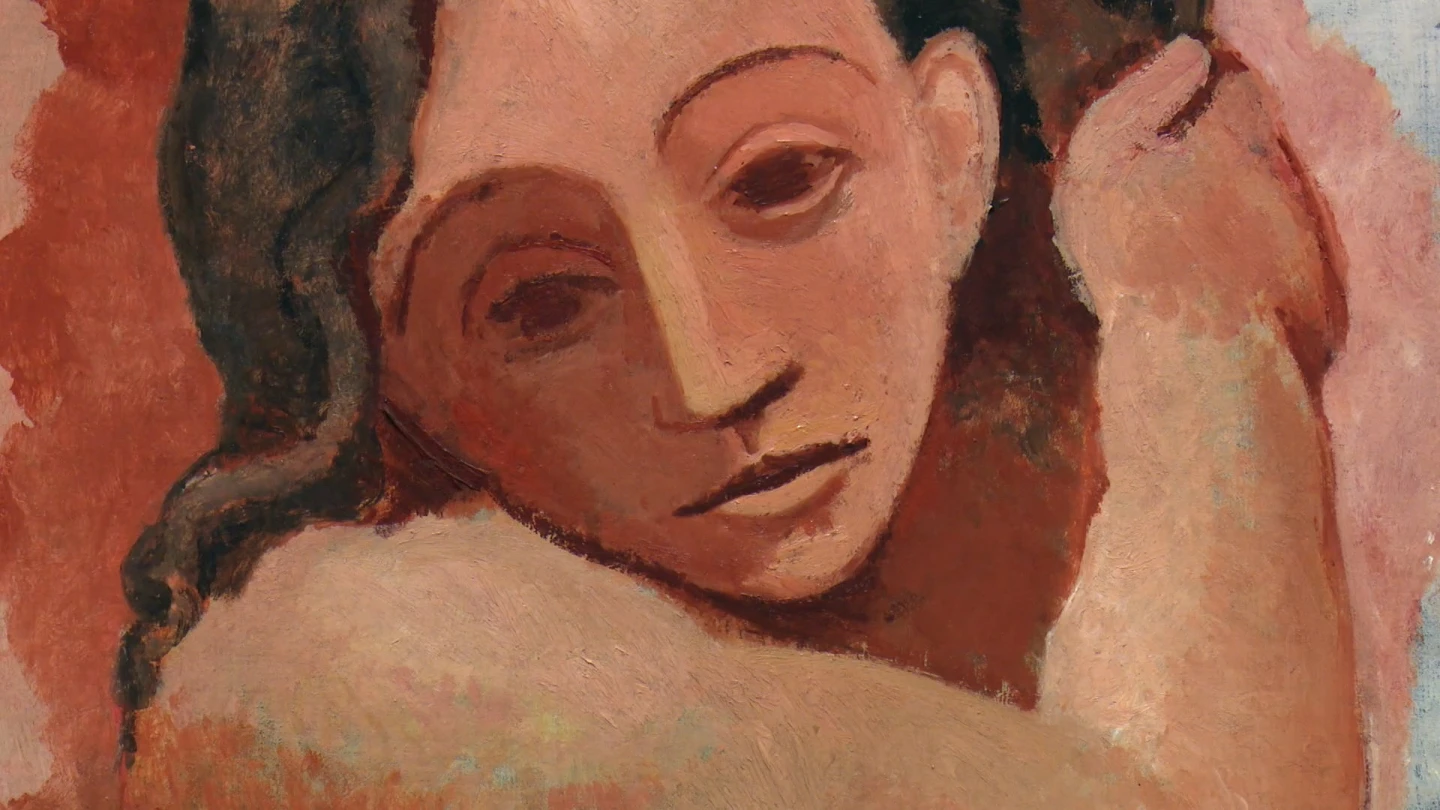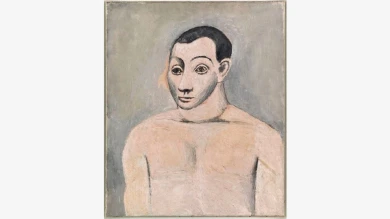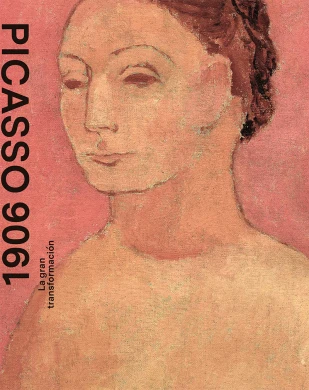-
Thursday, 16 November 2023 Sabatini Building, Auditorium
Picasso. Modernity and Otherness
— With Eugenio Carmona
TicketsA young and already mature Picasso was an artist with the ability to drink in different cultures, digesting them at speed. Therefore, he had to situate himself in a position of otherness, a place in which other central figures from the first avant-garde movements were not positioned. This transcultural Picasso, at that point in time, knew of himself in foreign terms, his otherness framed in his personal, romantic and sexual relationships, in his libertarian mode of leaving bohemia behind, in the gender performativity of his iconographies, in his procedural making, in the early hybridisation of his ethnographic reference points, in his capacity to not differentiate between the mythological and the vernacular and in his art-making with traces of the museum in the proposals that sought to re-found art itself.
-
Thursday, 23 November 2023 Sabatini Building, Auditorium
Gertrude Stein and Pablo Picasso: The Invention of Language
—With Cécile Debray
TicketsThe friendship between Pablo Picasso and Gertrude Stein took shape around the core and shared elements of their respective pictorial and literary work. Stein was a Jewish North American immigrant, and homosexual, who settled in Paris before the artist’s arrival there in 1901. Picasso was a Spaniard and a suspected anarchist with a police file. Being foreigners with a partial command of French, as well as their marginalisation, underpinned their belonging to Parisian bohemia and their artistic freedom. This lecture explores the affinity between the artist and the writer, sketching the reverberations of this relationship on European art and post-war American art and examining their later influence on artists such as Jasper Johns, John Cage, Steve Reich, Roni Horn and Anne Teresa De Keersmaeker, among others.
-
Thursday, 13 December 2023 Nouvel Building, Auditorium 200
Picasso and Primitivism: Anarchist Cultural Politics in Barcelona, Madrid and Paris
—With Patricia Leighten. Presented and Moderated by Eugenio Carmona
TicketsPicasso’s work is a prime example of primitivist techniques, allusions and evocations stretching from his beginnings in modernist Barcelona around 1900 to the crystallisation of Cubism in Paris prior to the First World War. His contact with anarchism in Madrid, Barcelona and Paris bolstered experimentation as a radical intervention on the forms of the most institutionalised naturalism. This lecture explores the artist’s relationship with anarchism, not only through a political frame of reference, but also observing more specifically his employment of works, artefacts and documents from non-Western and popular art, defined historically under the category of Primitivism. Every cultural allusion, whether Iberian, African or children’s art, or even the comic strip, introduces radical techniques in his paintings, with a rejection of the values of realism, classicism and rationality and essentially in accordance with aesthetic principles. By way of these ideas, Picasso would reach the ideal of the anarchist artist.
-
Wednesday, 24 January 2024 Nouvel Building, Auditorium 200
Gertrude Stein in the Shadow Cast by Gósol
—With Robert Lubar. Presented and Moderated by Estrella de Diego
TicketsBefore his trip to Gósol in the summer of 1906, Picasso stopped working on the portrait of his patron Gertrude Stein after approximately sixty sessions. Upon his return to Paris, he resumed the portrait, replacing Gertrude’s face with a mask-like form. This experiment stems from Stein’s famous quote that Picasso “could no longer see her” and examines the role of the mask in the finished Portrait of Gertrude Stein (1906), confronting lesbian sexuality and the gender identity of the model. The lecture addresses the portrait as a performative event between artist and model and also examines the role gender plays in Stein’s own literary corpus. Lubar, moreover, underscores the instability of gender in Picasso’s art throughout 1906 and 1907 and specifically examines the fluid gender work he produced in Gósol within the framework of a crisis of masculinity culminating in Les Demoiselles d'Avignon (1907)
-
Wednesday, 31 January 2024 Nouvel Building, Auditorium 200
Figuration, Flesh, Fragmentation: Picasso’s “Attack” on the Body in 1906
—With Tamar Garb. Presented and Moderated by Patricia Mayayo
TicketsThe portrait and nude genres were places of trial and experimentation for Picasso in 1906. This year is pieced together as a turning point with Picasso’s introduction of the mythology of Primitivism in his work, the “mask” and the “face” coming together as representational and ideological filters. Exploring these two systems of thought around individuality, figuration and the body as a place of generic and sexual inscription, Tamar Garb explores how an androgynous and non-binary pictorial identity emerges, despite the artist’s famed masculine and sexist stance. Thus, the lecture seeks to read the work as an alternative to the biography and veneration of the male genius, allowing for a more expansive and open revision of Picasso’s art.
-
Wednesday, 7 February 2024 Nouvel Building, Auditorium 200
Picasso in Gósol, 1906: Gynocentric Narratives and Border Bodies
—With Jèssica Jaques Pi. Presented and Moderated by Raquel Jimeno and Raúl Martínez
TicketsThis lecture touches on the weeks that Pablo Picasso, Fernande Olivier and their fox terrier puppy spent in Gósol in the summer of 1906 from a gynocentric perspective; namely, highlighting the agency women had in the radical transformation of the artist at the time and the trace they left on his work for posterity. It focuses on the border bodies of the Gósol matriarchy, on what Fernande Olivier must have felt at an altitude of 1,500 metres and surrounded by mountains and on the unusual friendship of both with Gertrude Stein and Alice B. Toklas, strikingly present in their absence.

Held on 16, 23 Nov, 13 Dec 2023; 24, 31 Jan, 07 Feb 2024
The lecture series Picasso 1906. The Turning Point is articulated around the same-titled exhibition held in the Museo from 15 November 2023 to 4 March 2024. The programme brings together eminent international specialists such as Eugenio Carmona, Cécile Debray, Tamar Garb, Jèssica Jaques Pi, Patricia Leighten and Robert Lubar, among others, with a view to surveying Picasso’s origins through a contemporary gaze.
Picasso 1906. The Turning Point examines the artist’s contribution to the seminal period in modern art, setting out to understand Picasso through a contemporary field of vision considering the critical examination around the artist in the present day. The entire oeuvre of the creator of Les Demoiselles d'Avignon (1907) entails an encounter with an “other”. With Picasso everything is perpetually polyphony, heteroglossia and hybridisation, yet in the second half of the twentieth century his life and work were condensed into narratives which removed the artist from his complexity; narratives circumscribed to the artist-myth and praise of a fledgling patriarchalism. These discourses would ultimately replace the artist himself, and in our contemporaneity, with its contours of questionings and urgent re-writings, we fail to realise that we are not speaking about Picasso but rather traced accounts of him. Picasso 1906. The Turning Point, both the exhibition and this series of lectures, looks to set forth a vitalist Picasso that yearns for the re-founding of the artistic experience. A Picasso close to libertarian thought, dedicated to the meaning of his practice, a Picasso which looks for origins and focuses his work in three registers: a search for the primoradial, the representation of the body and interculturality as a process.
In 1906, Picasso, identifying modernity and otherness, performatively understood the significance of the body and turned to the slides of gender, making the representation of the Arcadian adolescents the symbol of a new start for life and art. Thus, he transformed the academic concept of “nude”, replacing it with the notion of the “body in representation”. Without dispensing with the hypnotism of the scopic drive, Picasso gave the body significance and, therefore, made it a place of linguistic and cultural experimentation. The vernacular was now considered a mythology of origin. At the same time, Picasso in 1906 was redefining the framework between figure and ground, between plastic space and body, situating the underpinnings of a new visual system that sensed an understanding of the painting as object.
In his search for the primordial, and confronting European colonialism, Picasso propounded a synergy with primitive cultures, which occurred before it was customarily dated and with a powerful sense of the hybridisation of cultural references extending beyond the habitual concept of “primitivism”. Moreover, Picassian interculturality was observant of photography, ethnographic treatises, the press and popular illustrated books. His mode of understanding visual memory infringed the idea of anachronism and kept the legacy of the museum as an underlying paradigm, and as he watched his contemporaries and immediate predecessors he also interacted with them. He cited himself, maintaining the traces of his work and fostering the nachleben — the persistence or survival of images — of his own visual solutions. His relationship with Gertrude Stein was also pivotal to the foundation of modern art and, as a consequence, 1906 was fundamentally a “huge turning point”.
Organised by
Museo Reina Sofía
Inside the Celebrating Picasso 1973–2023 programme
The National Commission to Commemorate the 50th Anniversary of Pablo Picasso’s Death
Organised by
Inside the framework of
With the support of
Participating company in Spain
Participants
Eugenio Carmona is a professor of Art History at the University of Málaga and the curator of the exhibition Picasso 1906. The Turning Point. Some of the publications on which he has collaborated include El cubismo y sus entornos en las Colecciones de Telefónica (Fundación Telefónica, 2005-2008); Picasso, Miró, Dalí, Giovanni e arrabbiati: la nascita della modernità (Skira, 2011); Picasso and Spanish Modernity (La Mandragora and Palazzo Strozzi, 2014); and Modern Spanish Art from the Asociación de Arte Contemporáneo (Meadows Museum Dallas and Colección Arte Contemporáneo, 2016).
Cécile Debray is the director of Musée Picasso in Paris. Notable among her publications are the exhibition catalogue from the Grand Palais show Cézanne, Matisse, Picasso, l’aventure des Stein (Éditions RMN, 2011), as well as Le Fauvisme (Éditions Citadelles and Mazenod, 2014) and Les Nymphéas de Claude Monet (Éditions Hazan, 2020).
Estrella de Diego is a professor at the Complutense University of Madrid and a full member of the San Fernando Royal Academy of Fine Arts. Her publications most notably include Artes visuales en Occidente desde la segunda mitad del siglo XX (Cátedra, 2015), El andrógino sexuado: eternos ideales, nuevas estrategias de género (Antonio Machado, 2018) and Los mil rostros del minotauro: Picasso, Fifty Years Later ( Arquitectura Viva No. 249, 2022).
Tamar Garb is a professor in the Art History Department at University College London. Her publications most notably include Bodies of Modernity: Figure and Flesh in Fin de Siècle France (Thames Hudson, 1998) and The Body in Time: Figures of Femininity in Late Nineteenth-Century France (University of Washington Press, 2008).
Jèssica Jaques Pi is a professor of Aesthetics and Art Theory at the Universitat Autònoma de Barcelona. She also co-directs the Picasso PhD (Museo Picasso in Barcelona, in collaboration with the Universitat Autònoma de Barcelona and the Université de Picardie Jules-Verne, Amiens). She is the author of Picasso en Gósol, 1906: un verano para la modernidad (Antonio Machado, 2007), and head researcher on the project Los escritos de Picasso: textos teatrales (2016-2018) from Spain’s Ministry of Science and Innovation.
Raquel Jimeno is the coordinator of the Muso Reina Sofía’s Cultural and Audiovisual Activities.
Patricia Leighten is a professor emerita in the Art, Art History and Visual Studies Department at Duke University in the USA. Together with art historian Mark Antliff, she has published, among other works, Cubism and Culture (Thames Hudson, 2001) and A Cubism Reader: Documents and Criticism, 1906-1914 (University of Chicago Press, 2008). Her individual work most notably includes the publication The Liberation of Painting: Modernism and Anarchism in Avant-Guerre Paris (University of Chicago Press, 2013).
Robert Lubar is a professor of Fine Arts at New York University and a board member of the Fundació Joan Miró in Barcelona, an artist on which he is a specialist and has curated exhibitions such as Joan Miró en Oporto (Museo Serralves, 2016). His publications most notably include Unmasking Pablo’s Gertrude: Queer Desire and the Subject of Portraiture (The Art Bulletin 79, No. 1, 1997), Divided Landscapes: Painting and Politics in Spain (1898-1939) (Yale University Press, 2002) and the catalogue of Espacio Miró from Fundación Mapfre (2016).
Raúl Martínez is head of painting and drawing until 1939 in the Museo Reina Sofía’s Collections Area.
Patricia Mayayo is a full professor in the Department of Art History and Theory at the Autonomous University of Madrid. Her publications most notably include Historias de mujeres, historias del Arte (Cátedra, 2003), Cuerpos sexuados, cuerpos de (re)producción (Editorial UOC, 2011) and Arte en España (1939-2015), ideas, prácticas, políticas (Cátedra, 2015), the last of which was published with Jorge Luis Marzo.
Más actividades

Aesthetics of Peace and Desertion Tactics
8 October 2025 – 24 June 2026
The study group Aesthetics of Peace and Tactics of Desertion: Prefiguring New Pacifisms and Forms of Transitional Justice proposes a rethinking—through both a theoretical-critical and historical-artistic lens—of the intricate network of concepts and practices operating under the notion of pacifism. A term not without contestation and critical tension, pacifism gathers under its name a multiplicity of practices—from anti-militarism and anti-war movements to non-violence activism—while simultaneously opening urgent debates around violence, justice, reparation, and desertion. Here, pacifism is not conceived as a moral doctrine, but as an active form of ethical and political resistance capable of generating aesthetic languages and new positions of social imagination.
Through collective study, the group seeks to update critical debates surrounding the use of violence and non-violence, as well as to explore the conflict of their representation at the core of visual cultures. In a present marked by rearmament, war, genocide, and the collapse of the social contract, this group aims to equip itself with tools to, on one hand, map genealogies and aesthetics of peace—within and beyond the Spanish context—and, on the other, analyze strategies of pacification that have served to neutralize the critical power of peace struggles. Transitional and anti-punitive justice proposals will also be addressed, alongside their intersections with artistic, visual, and cinematic practices. This includes examining historical examples of tribunals and paralegal activisms initiated by artists, and projects where gestures, imaginaries, and vocabularies tied to justice, reparation, memory, and mourning are developed.
It is also crucial to note that the study programme is grounded in ongoing reflection around tactics and concepts drawn, among others, from contemporary and radical Black thought—such as flight, exodus, abolitionism, desertion, and refusal. In other words, strategies and ideas that articulate ways of withdrawing from the mandates of institutions or violent paradigms that must be abandoned or dismantled. From feminist, internationalist, and decolonial perspectives, these concepts have nourished cultural coalitions and positions whose recovery today is urgent in order to prefigure a new pacifism: generative, transformative, and radical.
Aesthetics of Peace and Tactics of Desertion, developed and led by the Museo Reina Sofía’s Studies Management, unfolds through biweekly sessions from October to June. These sessions alternate between theoretical discussions, screenings, work with artworks and archival materials from the Museo’s Collection, reading workshops, and public sessions. The group is structured around sustained methodologies of study, close reading, and collective discussion of thinkers such as Judith Butler, Elsa Dorlin, Juan Albarrán, Rita Segato, Sven Lütticken, Ruth Wilson Gilmore, and Franco “Bifo” Berardi; historical episodes such as the anti-nuclear and anti-arms race movement in Spain; and the work of artists and activists including Rojava Film Commune, Manuel Correa and the Oficina de Investigación Documental (Office for Documentary Investigation), and Jonas Staal, among other initial cases that will expand as the group progresses.

Institutional Decentralisation
Thursday, 21 May 2026 – 5:30pm
This series is organised by equipoMotor, a group of teenagers, young people and older people who have participated in the Museo Reina Sofía’s previous community education projects, and is structured around four themed blocks that pivot on the monstrous.
This fourth and final session centres on films that take the museum away from its axis and make it gaze from the edges. Pieces that work with that which is normally left out: peripheral territories, unpolished aesthetics, clumsy gestures full of intent. Instead of possessing an institutional lustre, here they are rough, precarious and strange in appearance, legitimate forms of making and showing culture. The idea is to think about what happens when central authority is displaced, when the ugly and the uncomfortable are not hidden, when they are recognised as part of the commons. Film that does not seek to be to one’s liking, but to open space and allow other ways of seeing and inhabiting the museum to enter stage.

Intergenerationality
Thursday, 9 April 2026 – 5:30pm
This series is organised by equipoMotor, a group of teenagers, young people and older people who have participated in the Museo Reina Sofía’s previous community education projects, and is structured around four themed blocks that pivot on the monstrous.
The third session gazes at film as a place from which to dismantle the idea of one sole history and one sole time. From a decolonial and queer perspective, it explores films which break the straight line of past-present-future, which mix memories, slow progress and leave space for rhythms which customarily make no room for official accounts. Here the images open cracks through which bodies, voices and affects appear, disrupting archive and questioning who narrates, and from where and for whom. The proposal is at once simple and ambitious: use film to imagine other modes of remembering, belonging and projecting futures we have not yet been able to live.

Remedios Zafra
Thursday March 19, 2026 - 19:00 h
The José Luis Brea Chair, dedicated to reflecting on the image and the epistemology of visuality in contemporary culture, opens its program with an inaugural lecture by essayist and thinker Remedios Zafra.
“That the contemporary antifeminist upsurge is constructed as an anti-intellectual drive is no coincidence; the two feed into one another. To advance a reactionary discourse that defends inequality, it is necessary to challenge gender studies and gender-equality policies, but also to devalue the very foundations of knowledge in which these have been most intensely developed over recent decades—while also undermining their institutional support: universities, art and research centers, and academic culture.
Feminism has been deeply linked to the affirmation of the most committed humanist thought. Periods of enlightenment and moments of transition toward more just social forms—sustained by education—have been when feminist demands have emerged most strongly. Awareness and achievements in equality increase when education plays a leading social role; thus, devaluing intellectual work also contributes to harming feminism, and vice versa, insofar as the bond between knowledge and feminism is not only conceptual and historical, but also intimate and political.
Today, antifeminism is used globally as the symbolic adhesive of far-right movements, in parallel with the devaluation of forms of knowledge emerging from the university and from science—mistreated by hoaxes and disinformation on social networks and through the spectacularization of life mediated by screens. These are consequences bound up with the primacy of a scopic value that for some time has been denigrating thought and positioning what is most seen as what is most valuable within the normalized mediation of technology. This inertia coexists with techno-libertarian proclamations that reactivate a patriarchy that uses the resentment of many men as a seductive and cohesive force to preserve and inflame privileges in the new world as techno-scenario.
This lecture will address this epochal context, delving into the synchronicity of these upsurges through an additional parallel between forms of patriarchal domination and techno-labor domination. A parallel in which feminism and intellectual work are both being harmed, while also sending signals that in both lie emancipatory responses to today’s reactionary turns and the neutralization of critique. This consonance would also speak to how the perverse patriarchal basis that turns women into sustainers of their own subordination finds its equivalent in the encouraged self-exploitation of cultural workers; in the legitimation of affective capital and symbolic capital as sufficient forms of payment; in the blurring of boundaries between life and work and in domestic isolation; or in the pressure to please and comply as an extended patriarchal form—today linked to the feigned enthusiasm of precarious workers, but also to technological adulation. In response to possible resistance and intellectual action, patriarchy has associated feminists with a future foretold as unhappy for them, equating “thought and consciousness” with unhappiness—where these have in fact been (and continue to be) levers of autonomy and emancipation.”
— Remedios Zafra

27th Contemporary Art Conservation Conference
Wednesday, 4, and Thursday, 5 March 2026
The 27th Contemporary Art Conservation Conference, organised by the Museo Reina Sofía’s Department of Conservation and Restoration, with the sponsorship of the Mapfre Foundation, is held on 4 and 5 March 2026. This international encounter sets out to share and debate experience and research, open new channels of study and reflect on conservation and the professional practice of restorers.
This edition will be held with in-person and online attendance formats, occurring simultaneously, via twenty-minute interventions followed by a five-minute Q&A.
![Pablo Picasso, Nude with Joined Hands [Desnudo con manos juntas], 1906. The Museum of Modern Art, New York. The William S. Paley Collection, 1990 © Sucesión Pablo Picasso, VEGAP, Madrid, 2023 © 2023, The Museum of Modern Art/Scala, Florence](https://recursos.museoreinasofia.es/styles/small_landscape/public/Exposiciones/picasso_1906_nude.jpg.webp)


